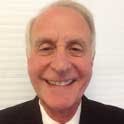Choosing a dental partner: Next time do it right
When selecting a potential partner, dentists frequently make appalling choices and find themselves involved in litigation or other stressful situations at the time of the “divorce.” I recently consulted with two dentists who had separate, thriving specialty practices, and each shelled out almost $150K to terminate failed partnerships. Several years ago, I worked with two oral surgeons who had formed a contractual relationship, only to discover after four years that they despised each other. They literally divided their offices by building a wall that bisected the building they co-owned from front to back!
The painful dissolution begins with a lack of due diligence and a flawed selection process. A dentist starts to look for a new partner by calling several of the candidate’s teachers (who are seldom genuinely honest because of a fear of litigation). If a professor likes the student, for whatever reason, the teacher heartily recommends the student. The younger dentist is then invited to visit the office, meet the staff, observe the senior dentist for a few hours, and have dinner and a brief conversation about the practice and life.
If the staff enthusiastically likes an individual, the owner/dentist is often strongly influenced by their positive feedback. If the spouse likes the candidate, or the candidate wants to live in the same area where the practice is located, it is almost always a done deal. (An interest in attending the same church, temple, synagogue, or mosque creates a false guarantee of compatibility!) This entire process is superficial, informal, unstructured, and fails to carefully examine whether the two clinicians truly fit.
The other flawed pairing occurs when an established dentist and a younger but independently practicing clinician meet at an event, are casual acquaintances, or have the same religious affiliation, and begin the process of combining their respective practices. The same misleading criteria are used to make the decision, and neither dentist seriously examines whether they have compatible personalities, share the same personal values and work ethic, have similar money management philosophies, etc. Instead, if their spouses are friendly and the dentists like each other, the die is cast and disaster patiently waits for the first conflict.
So, how do you correctly find a partner? The following procedure compels due diligence and guarantees an in-depth and clinical assessment of both potential partners.
a) First, identify a local, reputable, licensed psychologist who has been in private practice for at least eight to 10 years and fully appreciates the concept of “overhead.” Ask dental or physician colleagues for a name, call the individual, and explain the purpose of the inquiry and propose sending him/her this article. If the psychologist positively responds, is personable, familiar with the practiceof dentistry, or is willing to spend a day in the office (at no charge) interviewing the staff and shadowing the dentist, you’ve found your consultant. After the observation day, the psychologist should help the dentist identify his life goals and type of person for whom he is searching. In addition, the psychologist and the dentist should jointly construct a list of questions that will always be used to conduct in-depth, structured candidate interviews. This interview guide will standardize and streamline the process.
b) Contact the dean of a dental school or graduate program and ask for the names of three to four well-liked skilled students who are close to graduation. Travel to the school(s), use the structured interview, and rank the candidates. Use that same interview guide/process when networking with dentists who might know of someone who wants to combine practices or buy in. Place an ad in national journals such as Dental Economics, or even regional newspapers describing the search for a potential partner. At a minimum, start one year ahead of the deadline with this search and don’t hurry it. Due to their personality types, many dentists want decisions made quickly, and they perceive the world in very black and white terms. Those traits should be modulated with patience and deliberation.
c) Once a candidate has been selected, arrange for a day in the office. Invite the candidate’s partner and have him/her spend the day also. If possible, have the individual or couple spend the night in your home to further assess the individual’s demeanor in a more relaxed atmosphere.
d) If the candidate receives positive reviews, then both the senior and junior dentist should submit a written autobiography that has no limits on content or length to the consulting psychologist; its purpose is to provide a meaningful description of the people. The dentists should understand that these autobiographies will be treated as confidential. But they will provide the psychologist with insight regarding the individuals. The psychologist will use this information to formulate questions to be used later in the process.
e) Only afterboth autobiographies are received by the psychologist, the dentists will then complete the full length Minnesota Multiphasic Personality Inventory-2 (MMPI-2) and the Myers-Briggs Type Indicator (MBTI) for scoring and interpretation. The psychologist must do sufficient homework to assess the honesty of the answers and the emotional stability and compatibility of the dentists.
f) A day’s meeting should be scheduled with the senior and junior dentists and the psychologist. No significant others should be included. The psychologist is the group leader and sets the agenda. First, while the meeting should be relaxed, the discussion should always focus on relevant topics such as individual goals, responsibilities, and practice expectations (e.g., assignment of new patients, retirement, evening and weekend call, supervising staff, paying bills and salaries, solving building maintenance issues, establishing a potential satellite office, and more). Included in this conversation are important details concerning how many years the new associate would be required to work to prove worthy of becoming a partner, and how that would happen. The psychologist will also refer to specifics from the autobiographies to guide the discussion.
g) When every topic is explored to everyone’s satisfaction, the psychologist then clearly discusses the test results of both individuals. Each dentist should be shown the graphic results of the MMPI-2, and any aberrant or abnormally elevated scores should be fully explained. The psychologist should also provide conclusions regarding the degree of overall compatibility based on the test results, autobiographical data, and day’s dialogue. The psychologist should stress that this process protects both dentists from possible future financial and personal pain, and predicts the degree of probability of a successful partnership. The ultimate question must be answered in the presence of both parties. The psychologist should be sufficiently skilled to resolve any disappointment or anger, because it happens.
Using the MBTI language, most dentists have a high Judging or “J” score, enjoy a tightly scheduled and orderly practice, and strive for quick closure. However, these same traits will cause them to quickly reject this process as silly, unnecessary, unwieldy, or time consuming. These are the dentists who will have failed partnership horror stories to share.
Richard D. Hark, Ph.D., a private practicing licensed psychologist of 35 years, has consulted with many dental practices, specializing in the selection of new associate/potential partners. Mr. Hark has spoken to many dental groups throughout the U.S., has been a featured clinician at the Hinman Dental Society (he helps select new Hinman administrative staff), and most recently spoke at the Southern Association of Orthodontists meeting in 2013. He can be reached at [email protected].


